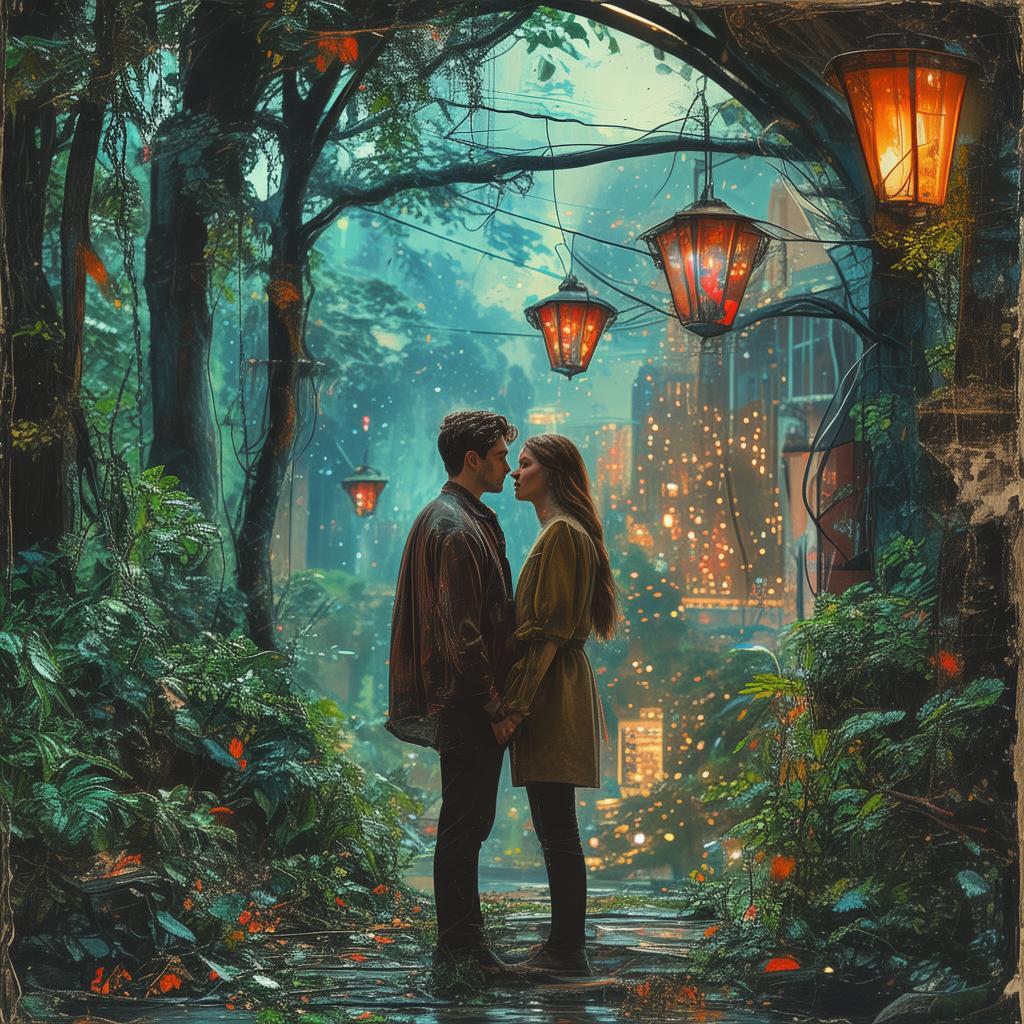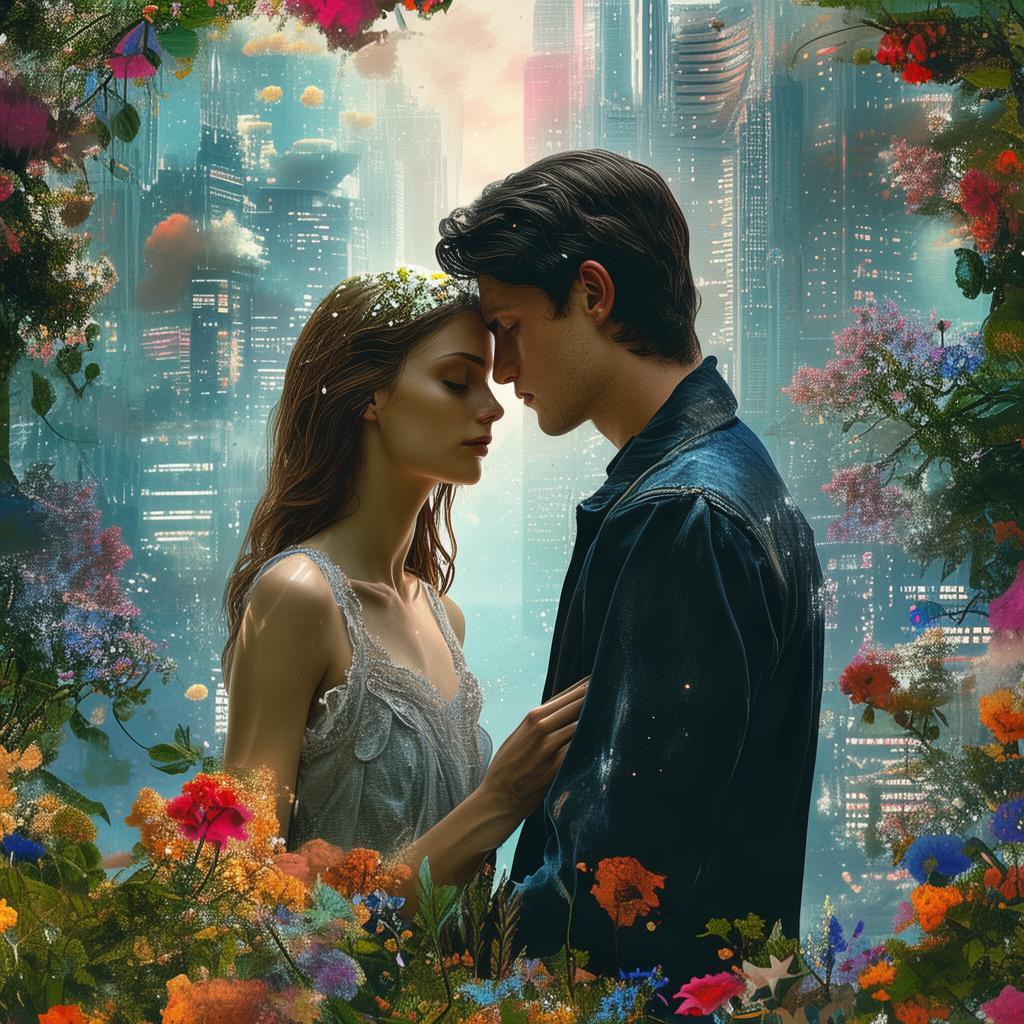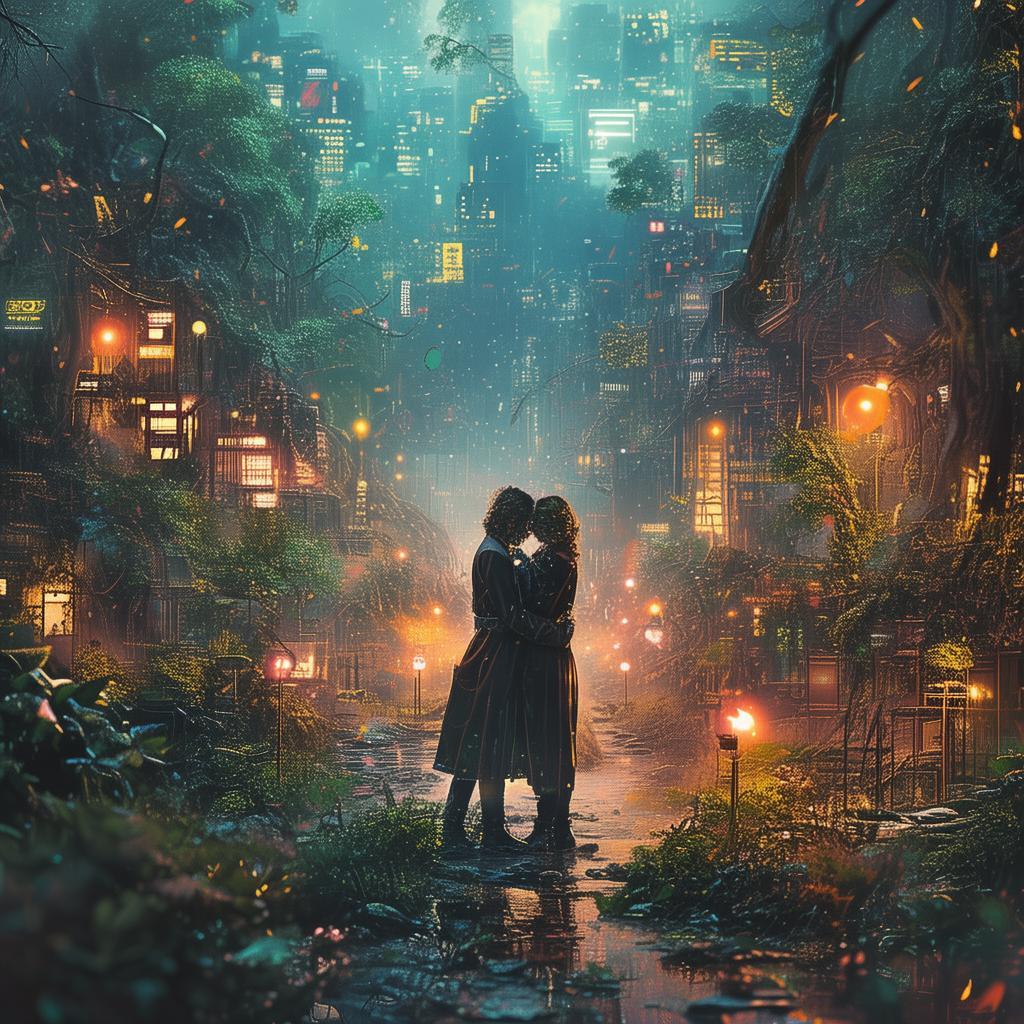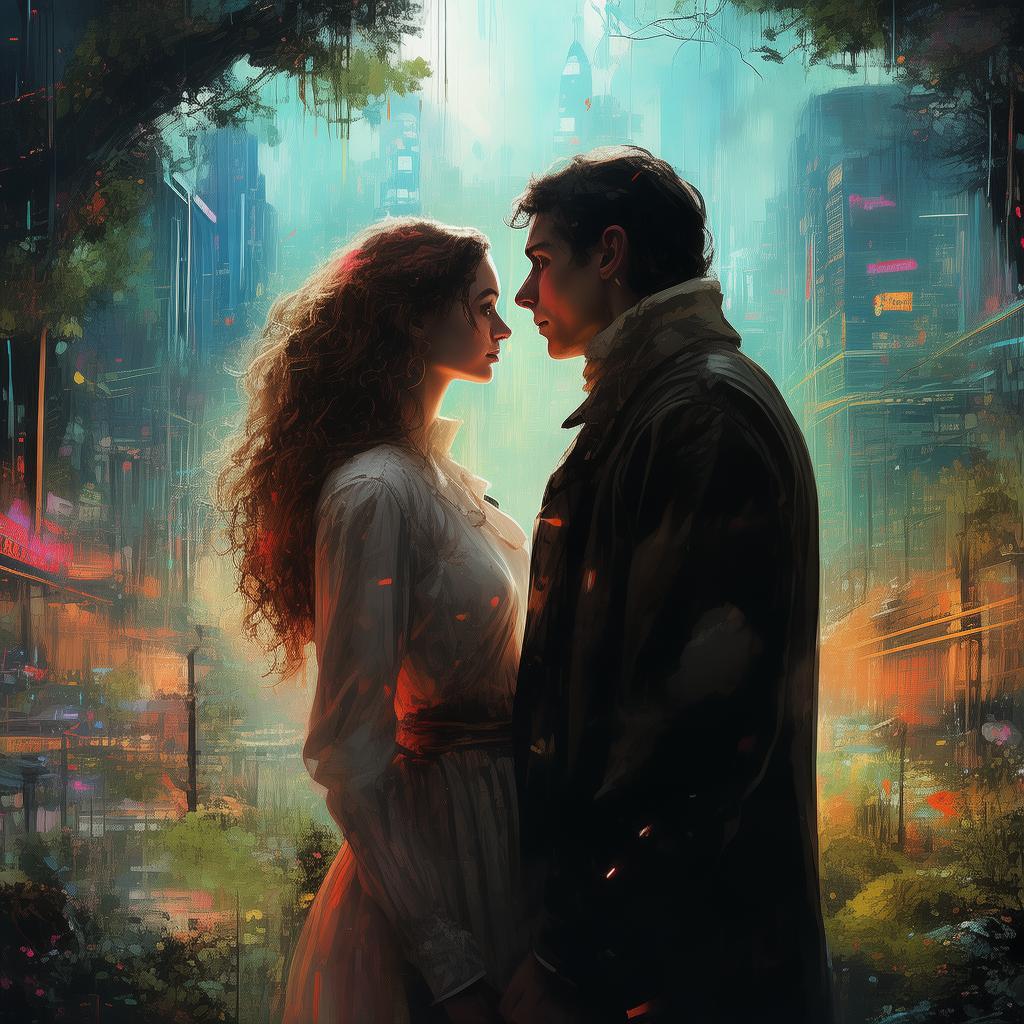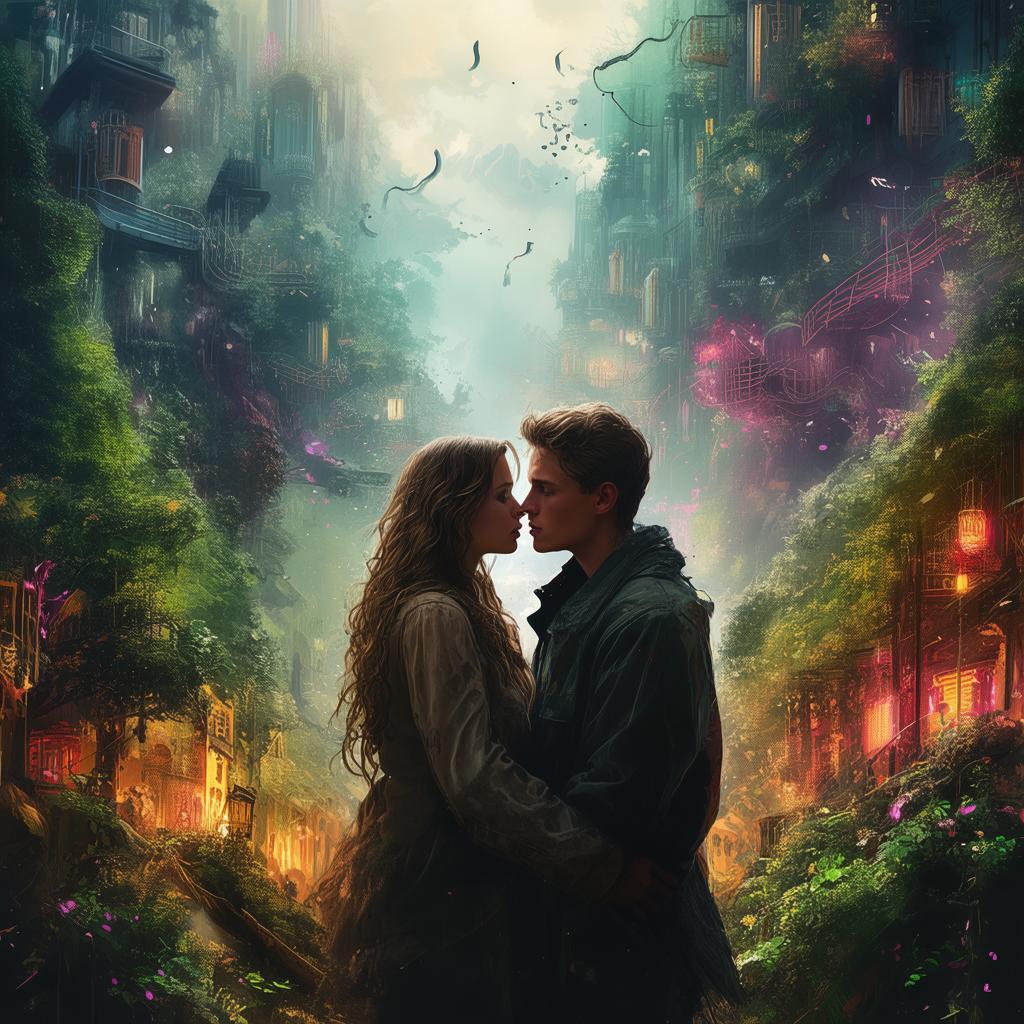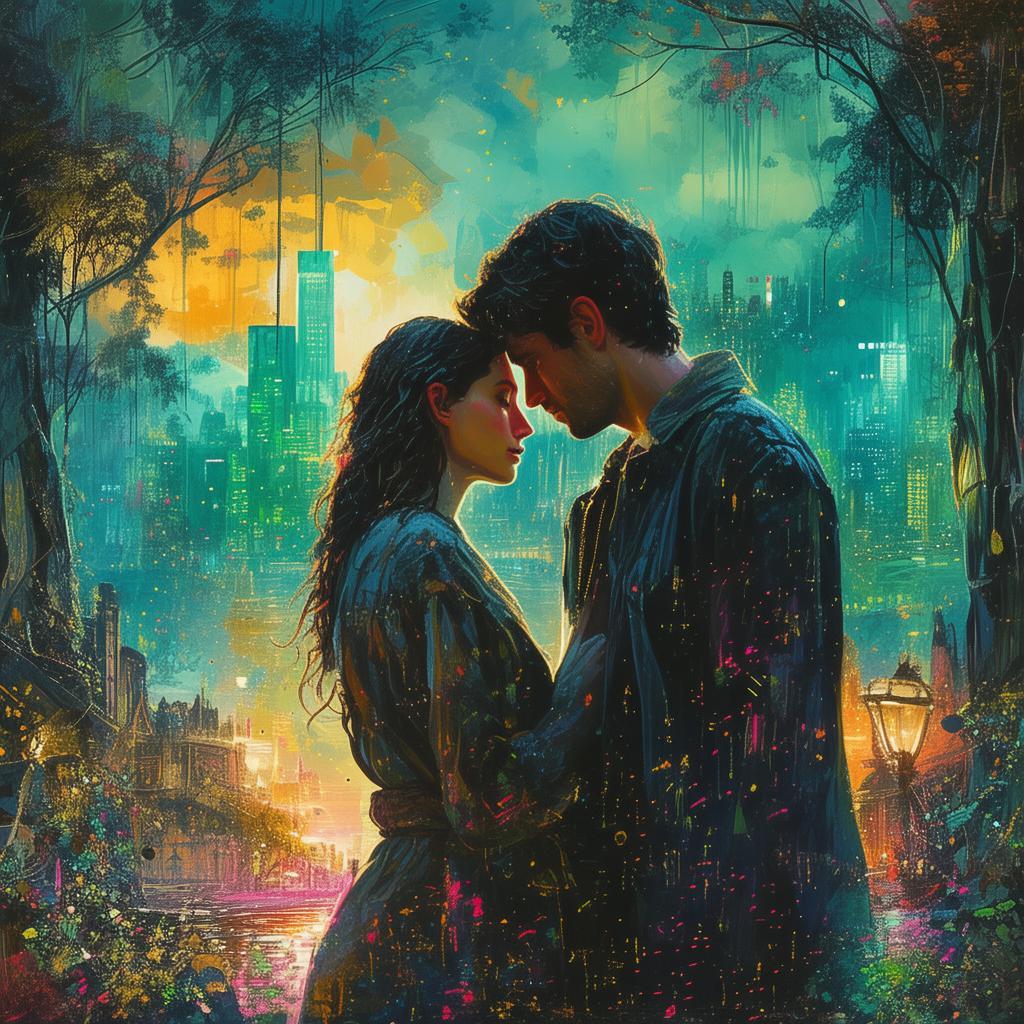Swing into the Abyss: A Love Lost to the Jazz Age
The night was a canvas of neon lights and the distant hum of jazz, the air thick with the scent of smoke and the thrill of the unknown. In a dimly lit speakeasy on the outskirts of New York City, young Louis Armstrong, the future Jazz Apostle, played his trumpet with a fervor that could only be matched by the intensity of his emotions. The room was filled with the sounds of the jazz age, a time when the world danced to a different rhythm, a time of freedom and excess, of love and loss.
In the corner of the room, a woman sat alone, her eyes reflecting the flickering flames of the candle beside her. Her name was Clara, and she was the embodiment of the jazz age—mysterious, alluring, and untouchable. Louis had seen her several times, each time more captivated by her presence than the music that filled the room. He was drawn to her like a moth to a flame, and he knew that if he ever dared to approach her, his life would never be the same.
One evening, as the music reached a crescendo, Louis found the courage to step closer to Clara. "Excuse me, miss," he began, his voice barely above a whisper. "I couldn't help but notice your presence here. I'm Louis Armstrong, the trumpet player." Clara looked up, her eyes meeting his with a mix of curiosity and wariness. "I'm Clara," she replied, her voice as soft as the feathers of a dove.
From that moment on, their lives were intertwined. Louis would spend every night after his gig at the speakeasy, waiting for Clara to appear. They would talk for hours, sharing stories of their dreams, their fears, and their love for jazz. Clara was a singer, and her voice was as powerful and soulful as her presence was captivating. Louis felt a connection with her that he had never experienced before, a connection that seemed to transcend the ordinary.
But the jazz age was not kind to those who loved deeply. It was a time of prohibition, of bootleggers and gangsters, of corruption and greed. Clara's past was shrouded in mystery, and as Louis delved deeper, he discovered that she was involved in a dangerous world, a world that threatened to consume them both.
One night, as they sat on a rooftop overlooking the city, Clara looked at Louis with tears in her eyes. "Louis, I have to leave," she said. "I can't stay here any longer. The life I'm leading is too dangerous for you. I can't risk losing you."
Louis, his heart breaking, nodded. "I understand, Clara. I'll do whatever it takes to keep you safe."
But Clara's departure was not the end of their story. It was only the beginning of a long, arduous journey. Louis, determined to find her and protect her, plunged into the depths of the jazz age, facing the dangers and challenges that came with it. He discovered that Clara was part of a secret society, a group of musicians and artists who were fighting against the corruption of the time.
As Louis navigated the treacherous waters of the jazz age, he found himself in the midst of a web of deceit and betrayal. He was forced to make difficult choices, choices that would test his loyalty to Clara and his love for jazz. Along the way, he encountered other musicians, some who became friends, others who became enemies.
One evening, as Louis played a gig at a club, he received a message from Clara. It was a cryptic note, telling him to meet her at a specific location. He rushed to the address, only to find himself face-to-face with a gangster who demanded that he hand over Clara. Louis, knowing that he couldn't protect her alone, agreed to do so, hoping to find a way to save her from the clutches of the criminal underworld.
As he stood in the back of a car, driven away by the gangster, Louis realized that he had made the wrong decision. He had put Clara in more danger than ever before. He vowed to find a way to rescue her, no matter the cost.
In the days that followed, Louis's life was a constant struggle. He played gigs, fought off gangsters, and searched for any clue that might lead him to Clara. One night, as he was performing at a club, he received a call from a friend who had heard from a reliable source that Clara was being held captive in a warehouse on the outskirts of the city.
Louis, fueled by a mix of determination and desperation, made his way to the warehouse. As he approached the entrance, he heard the sound of Clara's voice, weak and scared. He pushed open the door, only to find himself face-to-face with the gangster who had taken her.
"You're too late," the gangster said, pulling a gun. "She's already dead."
Louis, his heart shattered, fell to his knees. But as he looked into Clara's eyes, he saw a spark of life, a glimmer of hope. "No," he whispered. "She can't be."
In a desperate bid to save Clara, Louis fought the gangster, using every trick he had learned in his years as a jazz musician. The fight was fierce, and in the end, Louis emerged victorious, but not unscathed. Clara, though alive, was injured, and needed immediate medical attention.
Louis carried her to a nearby hospital, where she was treated for her injuries. As she lay in her hospital bed, she looked at Louis with gratitude in her eyes. "I don't know what I would have done without you," she said.
Louis, feeling a sense of relief and triumph, smiled. "We'll get through this, Clara. We'll get through anything together."
But as they talked, Louis couldn't shake the feeling that their time together was coming to an end. The jazz age was a time of fleeting moments, of love that could be snuffed out in an instant. He knew that he had to leave Clara, to return to the life of music that had always been his true passion.

As the sun rose over the city, Louis stood by Clara's bed, feeling the weight of his decision. "I have to go, Clara," he said. "I have to return to the jazz. It's my life, and I can't let it go."
Clara, her eyes filled with tears, nodded. "I understand, Louis. I'll miss you, but I'll always love you."
With a heavy heart, Louis left Clara's side, knowing that their love had been a beautiful, fleeting moment in the jazz age. He returned to the stage, the trumpet in his hands, ready to share his music with the world, but forever changed by the love he had lost.
The jazz age continued to thrive, its music echoing through the streets of New York City. Louis Armstrong became the Jazz Apostle, his music a testament to the love he had once known. And though he never saw Clara again, he carried her memory with him, a reminder of the power of love and the beauty of the jazz age.
✨ Original Statement ✨
All articles published on this website (including but not limited to text, images, videos, and other content) are original or authorized for reposting and are protected by relevant laws. Without the explicit written permission of this website, no individual or organization may copy, modify, repost, or use the content for commercial purposes.
If you need to quote or cooperate, please contact this site for authorization. We reserve the right to pursue legal responsibility for any unauthorized use.
Hereby declared.
